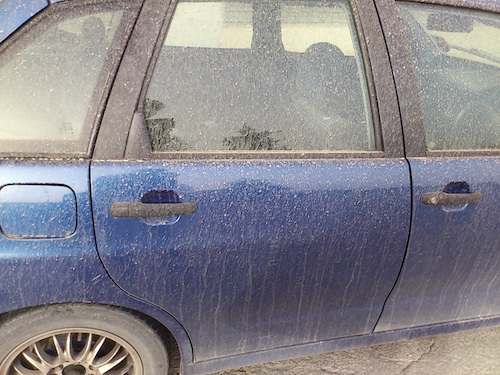By the end of summer in an island without rain, the roads were crusted with a carapace of filth.
Trees were burned brown. What grass there was had withered to straw. Only the prickly pear and olives retained a pale green.
Old ladies polished their front doors at dawn with buckets and rags, to no avail. The island thirsted for cleansing rain, as eagerly awaited as the Indian monsoon but with the flare of Arab tempers in traffic. Family disputes broke out like brush fires and were quickly quelled.
Every weekend and afternoon was spent at some rocky cove, but the sea — bathtub warm — no longer gave relief.
Autumn offered no consolation, because in Malta autumn didn’t exist. Humid winds absorbed vapour from the sea and smothered the island in equatorial heat, giving it the climate of a Turkish bath. September brought sweat-soaked nights that were too hot even for a quickie.
We climbed up to my study each night and slept on mattresses on the floor because it was the only room with an air conditioner. We were living in an 8-bedroom palazzo, but we were forced to live like transients.
“Do you want to go to the olive festival?” my wife asked me later that month.
“The what?”
“Our village is having an olive festival this weekend, to coincide with the harvest. It’s supposed to be a big event.”
“There isn’t a single olive tree left in the town. The trees on our roof are Zejtun’s largest plantation.”
“Well, there’s one in the pjazza right now. Someone brought it in.”
And so that Friday we dutifully shuffled to the village square, edging our way through the crowd until we reached the main church.
“This is exactly the same as the village feast,” I said. “Even the fast food vendors are the same. The only difference is that sheep.”
Someone had erected a wooden pen next to the church, with hay and a sheep and an olive tree in a pot. A village man stood in the centre of it wearing what was supposed to be period clothes.
“This is just an excuse to stand around eating fast food.” I kicked a crumpled wrapper out of my way in disgust. “I’m going home.”
A couple nights later, she came to my room and said, “Do you want to go see Michael Jackson?”
“Michael Jackson is dead.”
“Apparently not. He’s coming to Zejtun this week.”
“This island is the perfect place for someone in a witness protection program. Sometimes it feels like we’ve fallen off the edge of the earth.”
“So you don’t want to go to the music festival this year, either?”
The summer heat finally broke with a series of violent early October storms, putting a sudden end to five or six months of completely rainless skies and the terrible purgatory of September.
The island was so badly overbuilt that the streets themselves became rivers. Water gushed from hilly areas and rushed through village cores in a flood that could rapidly rise to ankle and then knee height. Litter flowed down the streets too, clogging the narrow grates of the few working culverts and backing up pools of beaver pond dimension.
Land Rovers breezed through these ponds, showering water with great abandon, but anyone in a normal car would need to take great care driving through them, because you could quickly find yourself out of your depth. I heard rumours of Fiat Uno’s that had inadvertently dropped into a pothole under such conditions and were never seen again.
Half the cars on the road leaked oil, and it baked into the streets in great dark patches all summer. That first autumn storm freed up nearly a year’s worth of sludge, transforming the roads into greasy slicks.
And so drivers piled up their cars at the bottom of hills and the entrances of roundabouts, year after year. People threw up their arms and cried, “Madonna! What happened?” and pointed fingers of blame. But then the storms died down, sunny weather returned, and the floods were immediately forgotten.
Everyone quickly discovered something better to do, like going to the beach or eating a pastizzi.
And so we moved into winter.


How transporting- an immense delight to read having suffer hundreds if not thousands of flight cancellations.